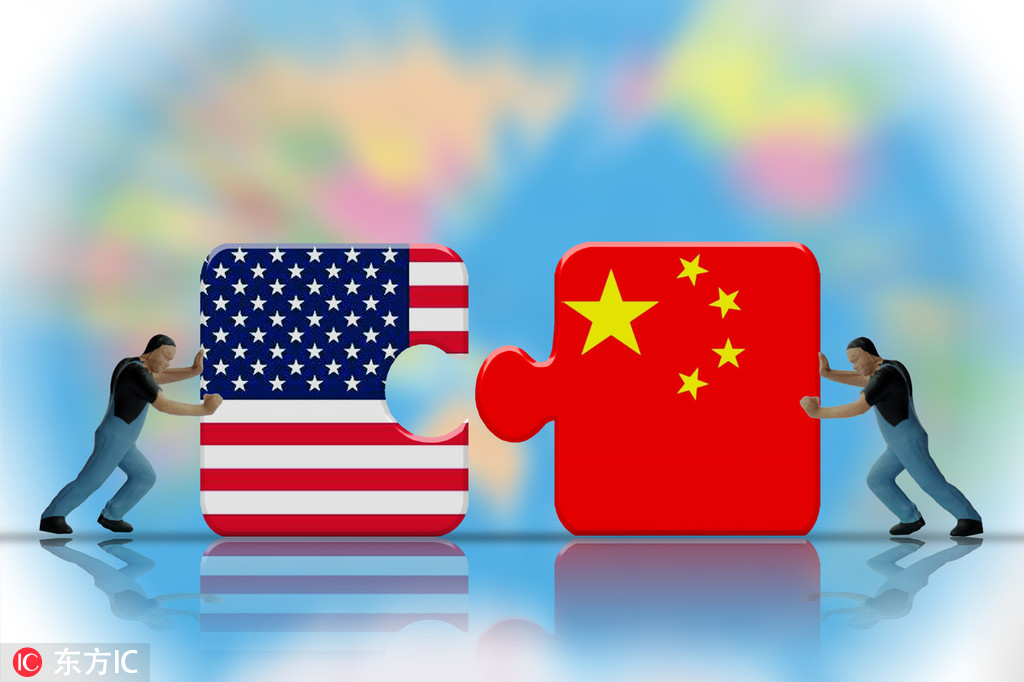Room seen for China, US to seek commerce negotiations


Foreign policy experts see room for China-United States negotiations on the bilateral commercial relationship, which was described as complicated but crucial.
"This is good, as long as both sides are willing to behave positively and focus on solutions rather than on blame," Jack Midgley, principal of global consultancy Midgley & Co, told China Daily.
US Commerce Secretary Gina Raimondo was the latest high-level official from the administration of US President Joe Biden to visit China. Her trip came amid worries that the growing tensions between the two major global powers could escalate uncontrollably.
During her trip to Beijing and Shanghai, which began on Aug 27 and concluded on Wednesday, Raimondo met with a number of senior Chinese officials.
The two sides reached important consensus on increasing communication, and they exchanged positions and demands on various issues.
They also agreed to hold annual meetings between US and Chinese commerce chiefs, to establish a mechanism for exchanging export control enforcement information, and to set up a commercial issues working group and a high-level dialogue between the two countries' tourism industries.
Midgley said that both the US and China were "obviously interested in a good outcome" for the trip.
"That's a matter of hard economic interest," he said, adding: "So the real question is a pragmatic question. Are the two sides going to continue to do the hard daily work of negotiating trade agreements and advancing the economic development of both countries?"
Export controls are always "a stumbling block" in a bilateral relationship, so the export control information mechanism "will provide both sides with the information they need to reduce export controls step by step, transaction by transaction", and this will be "a good thing for both sides", Midgley said.
He added that since the US and China represent more than 40 percent of total global GDP, and the relationship is the most important bilateral economic relationship in the world, "removing obstacles to that relationship is a very important step for the world and for the two countries".
"This was a good accomplishment and a testimony to the willingness of both sides to work patiently and pragmatically on the relationship," said Midgely.
Raimondo said at a media briefing on Wednesday in Shanghai that she was hopeful about holding regular, direct talks with Chinese officials, but added that she did not expect that every issue between the US and China could be resolved "overnight".
According to Midgley, some advanced technologies, such as software, advanced microprocessors, communications equipment and robotics, are key to China's development.
China must develop these technologies, while the US wants to maintain an edge, Midgley said."So this is where the US-China trade relationship becomes complicated and where it has to be managed one piece at a time."
He added that Raimondo's "national security" reference meant artificial intelligence, advanced computing capabilities and advanced materials, among other things.
"They are also the key drivers of economic development for the United States and for China," Midgley said. "Of course, we are going to negotiate these technologies. These dual-use technologies are the main challenge in the US-China trade relations today.... We have to negotiate to reach solutions that are acceptable to both sides."
Sourabh Gupta, a senior fellow at the Washington-based Institute for China-America Studies, told China Daily that "the room for negotiations on the US' dual-use technology controls regime is a narrow one".
"Fundamentally, the 'room for negotiations' in the US' view is primarily to improve market access and the business environment for US companies doing or seeking to do business in China," Gupta said.
He added that the area "most amenable" to a bilateral conversation on improving the business environment relates to foreign companies in China, because there is mutual desire on this front.
"The Chinese government would like to ramp up private sector investment, including by foreign businesses, and to this end, it recently put out a State Council opinion that was well-received by the foreign business community," Gupta said.
The US "would of course like its businesses to make greater inroads in the Chinese market and fatten its profits - although I think there is an overestimation at the US government end as to what it can achieve for American businesses in China, given that the Biden administration itself has been willfully creating an inhospitable business environment for Chinese businesses in America".
Nonetheless, "this is one of the few areas where the two sides can provide mutually beneficial assurances to each other", he added.
Midgley said:"The idea that China is 'uninvestable' is just nonsense. Money is pouring into China. Foreign investment continues to pour into China. It's in China's interest to make sure that it's an attractive place to invest."
The two experts were not optimistic about shortening the blacklists of Chinese companies for either US export or investment restrictions.
"At best, there is hope for only a marginal few to be delisted, and that,too, only if a core US interest is involved. For example, the Biden administration is considering removing a Chinese state entity -not a Chinese commercial entity -from its Entity List as part of bilateral give-and-take on the fentanyl issue," said Gupta.
Midgley said it is not a US objective to shorten the lists. "It's in the US' interest to favor domestic investment, particularly around the blacklist areas. … I don't think that's going to change until the two sides can think through how to deal with technologies like artificial intelligence."




































